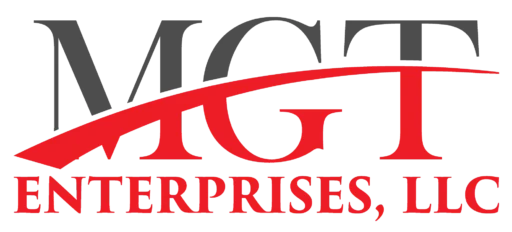Do you know why sometimes teaming up can be highly beneficial for your business? When it comes to government contracting in particular, partnering with a WBE teaming partner or MBE teaming partner can be a real game changer, not only for compliance but also for winning bids.
It goes without saying that government contracting is competitive, and even the smallest details can make or break your bid. This is why, to improve the odds, a smart approach contractors have started using is partnering with certified minority- or women-owned businesses. In fact, these partnerships not only add value but also improve eligibility and strengthen proposals.
Are you skeptical about how partnering with these businesses can help your bid? Don’t worry, today we will deep-dive into why your next government contract should absolutely have an MBE or WBE teaming partner. From undereating set-aside contracts to increasing your submission appeal, we’ll break down the strategic advantages that you can’t afford to ignore.
Understanding MBE and WBE Certifications
Before getting into business with these companies, you will need to have a better idea of what these companies are and what they stand for. An MBE (Minority Business Enterprise) is a firm that is owned and controlled by at least 51% of minority groups. In the same manner, WBE (Women Business Enterprise) is a firm owned and controlled by at least 51% women.
If you would like to qualify as an MBE or WBE teaming partner, your company will need to undergo formal certification, and that involves having ownership, control over management, and active participation. In addition, these certifications are typically granted by federal, state governments, or organizations such as NMSDC (National Minority Supplier Development Council) and the WBENC (Women’s Business Enterprise National Council).
Similarly, companies that wish to acquire a government contract will have to possess such certifications in order to improve the probability of being noticed and made eligible. Not to mention, many government agencies have objectives or requirements that call for diverse businesses in their purchasing process, making these relationships all the more beneficial.
Benefits of Partnering with MBE and WBE Firms
Access to Set-Aside Contracts
Most government agencies usually reserve a portion of their procurement opportunities for certified diverse businesses. Just by teaming up with a WBE or a WBE teaming partner, you can tap into these exclusive set-aside contracts, which are only available for eligible businesses. This single implementation can expand your bidding opportunities and improve the likelihood of contract awards.
Similarly, a lot of contracts with diversity goals need subcontractor participation from certain firms. Partnering with these businesses can help meet these goals, thus making your government contract proposal even more compelling to procurement officers who are looking for inclusive vendor teams.
Better Proposal Competitiveness
Simply by working with a certified MBE or WBE firm, you can complement your strengths. As these partnerships tend to provide nice expertise, localized knowledge, and unique services that can help you in improving your proposal’s overall value. Plus, this diversity not only increases your technical quality but also shows social responsibility.
Similarly, agencies usually view proposals with MBE and WBE teaming partners more approvingly, since they align with their diversity initiatives. Thus, invertibility improves your score in the review process and makes your bid stand out in a competitive environment.
Networking and Mentorship Opportunities
Teaming up with experienced WBE or MBE teaming partners can provide you with more than a contract advantage since these partnerships can open doors to even wider business relationships. Some of these certified firms come with established networks within government agencies and contracting circles, which can help you in future opportunities.
Depending on the circumstance, you might also gain valuable mentorship from these firms that are seasoned in government contracting. Also, this shared knowledge can improve your bidding strategies and long-term success in the federal marketplace.
Types of Teaming Arrangements
Prime-Subcontractor Relationships
During a prime subcontracting arrangement, the prime contractor takes the lead in handling the government contract, while the WBE or MBE teaming partner provides the specific support services or deliverables. This systematic approach allows for clear role distribution and encourages diverse firms to participate in federal projects without taking full contract responsibilities.
These structures are common and effective, in particular when smaller certified businesses can add even more unique capabilities. Just by working under a prime subcontractor model, both parties can benefit from meeting diversity goals, gaining valuable experience, and having exposure in the federal marketspace.
Joint Ventures
This procedure involves forming a new legal entity by two or more firms to chase a government contract together. In this approach, a WBE or MBE teaming partner shares risks, responsibility, and profits equally, depending on the agreed terms. Thus, encouraging a balanced collaboration.
Joint ventures are usually used for larger contracts in which pooled resources and capabilities improve competitiveness. These require formal agreements and approvals, particularly when certified firms are involved, but do provide long-term benefits in terms of business growth, technical synergy, and better bidding capacity.
Mentor-Protégé Programs
The federal government also supports Mentor-Protégé Programs to help small or disadvantaged businesses like MBE or WBE firms. This allows them to gain skills, experience, and knowledge from more acknowledged contractors. This means the mentor will provide training, technical assistance, and even subcontracting opportunities.
Additionally, these programs are promoted by agencies like the SBA and the Department of Defense, which can lead to joint bidding opportunities. Taking part in these programs not only solidifies relationships but also creates long-term capacity for small businesses to become prime contractors themselves for future contracts.
Best Practices for Forming Successful Partnerships
- Find the Right Fit – Find an MBE or WBE teaming partner whose services can complement your strengths and align with your goals to create harmony, effectiveness, and competition in your government contract proposal.
- Clarify the Terms — Make a clear written agreement that outlines each party’s role, responsibility, and expectations to prevent misunderstanding and to guarantee a smooth and successful partnership throughout the contract lifecycle.
- Keep Dialogue Open — Organise regular check-ins and cultivate transparent communication to stay on track, address issues early on, and establish trust and collaboration between all teams involved.
Final Thoughts
Working with an MBE or WBE teaming partner provides strategic advantages in government contracts simply by improving your proposal strength, meeting diversity goals, and unlocking set-aside opportunities. Just by pursuing these alliances, not only will you be able to improve your competitiveness, but you will also support a more inclusive and creative federal procurement marketplace.






